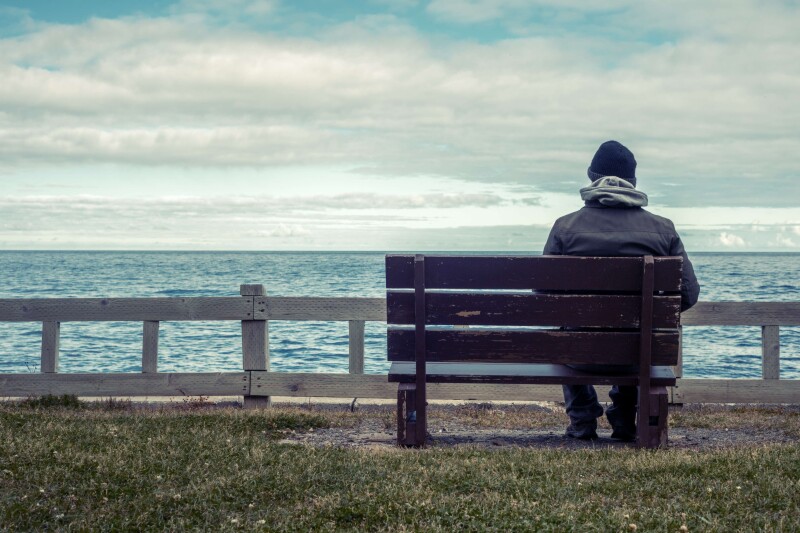Fishing is one of the toughest jobs out there, and for many, alcohol has long been the go-to way to deal with the stress, uncertainty, and the sheer physical toll of the work.
This article is not about blame or shame; it's about understanding why drinking plays such a big role in our communities and what other options might exist for those looking for a different way.
Commercial fishing is one of the most demanding jobs in the world. It’s physically grueling, unpredictable, and often dangerous. The industry operates on tight margins, and fishermen carry a level of stress that most people can’t comprehend, worrying about weather, quotas, gear breakdowns, and the uncertainty of regulations and closures.
In many fishing communities, alcohol has long been a part of the culture. It’s there to celebrate a big haul, to mourn a lost friend, or to simply mark the end of a brutal season. Drinking is social, and it’s often seen as a way to bond, to let off steam, or to temporarily escape the pressures of the job. But sometimes, that drinking shifts from occasional to excessive, and the line between unwinding and relying on alcohol to cope with stress starts to blur.
Alcohol use in rural areas tends to be higher than in urban settings, and fishing communities are no exception. The job itself is filled with uncertainty—fishermen rely on factors beyond their control, such as weather, regulations, market prices, and luck. The financial pressure of an unpredictable season can be overwhelming, and for many, alcohol becomes a way to take the edge off that stress. On top of that, fishing can be an isolating profession. Long hours at sea and time away from family and friends make it difficult to maintain strong social connections. During the winter months, when fishing slows down for some, that sense of isolation can become even more pronounced, making alcohol an easy form of escape.
The physical toll of commercial fishing is another major factor. The job is demanding, leading to chronic pain, fatigue, and injuries that often go untreated. Alcohol can seem like an easy and accessible way to numb discomfort, even though it ultimately makes recovery and long-term health more difficult.
In some areas, drinking is deeply ingrained in the fishing culture. For generations, it has been part of celebrations, traditions, and even daily life. There’s an expectation that fishermen drink, and heavy drinking is often seen as a normal part of the lifestyle, which makes it even harder for those who want to cut back or quit. This expectation often frustrates me, honestly. There have been a couple of times when the Maine Coast Fishermen’s Association has hosted events, and I’ve been asked, “Where are all the fishermen? Maybe if you had beer, they would be here!” Personally, I find this rather insulting and not at all funny.
Fishermen have long been stereotyped as heavy drinkers, a perception reinforced in media, pop culture, and even within their own communities. This assumption creates a damaging cycle. When people expect fishermen to drink, it normalizes excessive alcohol use and makes it harder for those who want to cut back or quit. It also overshadows the reality that many fishermen are hardworking professionals who take their health, safety, and livelihoods seriously. The stigma is not only unfair but also problematic because it can discourage fishermen from seeking support or making healthier choices for fear of being seen as less tough or less part of the crew. In reality, fishermen are individuals with diverse experiences and reducing them to a single narrative of hard drinking does a disservice to the strength, discipline, and adaptability required to survive in the industry.
To be clear, not everyone who drinks struggles with alcohol use. But even people who feel like they have their drinking under control can go through periods where they’re drinking more than they’d like, especially during stressful times. And let’s be honest, this is not just the case for fishermen. Alcohol use is so normalized that it makes it challenging for anyone interested in getting sober or cutting back to do so without question or temptation.
Not everyone wants to quit drinking, and that’s okay. And sometimes, people just want (need?) to cut back, which is also totally okay!
Thankfully, the conversation around alcohol is changing—both generally and within the fishing community. More people abstain, and many bars and breweries now offer mocktails and non-alcoholic (NA) beers. Some are choosing cannabis instead of alcohol. While this might seem like substituting one habit for another, studies suggest that cannabis carries fewer risks, such as lower toxicity, no known overdose risk, and a weaker association with violence or reckless behavior. This approach might be considered harm reduction, which focuses on minimizing negative consequences rather than insisting on complete abstinence. However, fishermen should remember that cannabis is still federally illegal, and vessels are federally registered documents, so it’s important to be mindful of the legal implications.
The good news? There are other means of harm reduction and coping strategies that are completely legal no matter where you are. One of the simplest, but also one of the most challenging if you already feel like you’re drinking too much, is setting boundaries. You can decide ahead of time how many drinks to have. Limit yourself by only bringing a certain amount of money to the bar or a set number of drinks to a friend’s house. You could also establish drinking-free days or specific times when you allow yourself to drink. These strategies can work for someone trying to cut back, but if you’re aiming for complete sobriety, this kind of self-negotiation can be difficult to maintain once you’ve had a couple of drinks.
More people are recognizing the toll excessive drinking can take, and more communities are offering support without judgment. There’s no one-size-fits-all solution, but the most important thing is this: No one needs to navigate these challenges alone. It’s important to find someone you can confide in, someone who will support you while also holding you accountable. But at the end of the day, whatever your reason for wanting to cut back or quit drinking, it’s truly no one’s business but your own.
Maybe none of this is for you. Maybe you’ve been thinking about cutting back. Maybe someone has told you that you need to cut back. Maybe you’re thinking about removing alcohol from your life entirely. Not one of these considerations makes you any less of a fisherman, nor are you the only fisherman struggling with your relationship with alcohol. If anything, sharing with others that you want to cut back or quit only makes you stronger because being vulnerable is one of the hardest things for anyone, but especially for fishermen.







